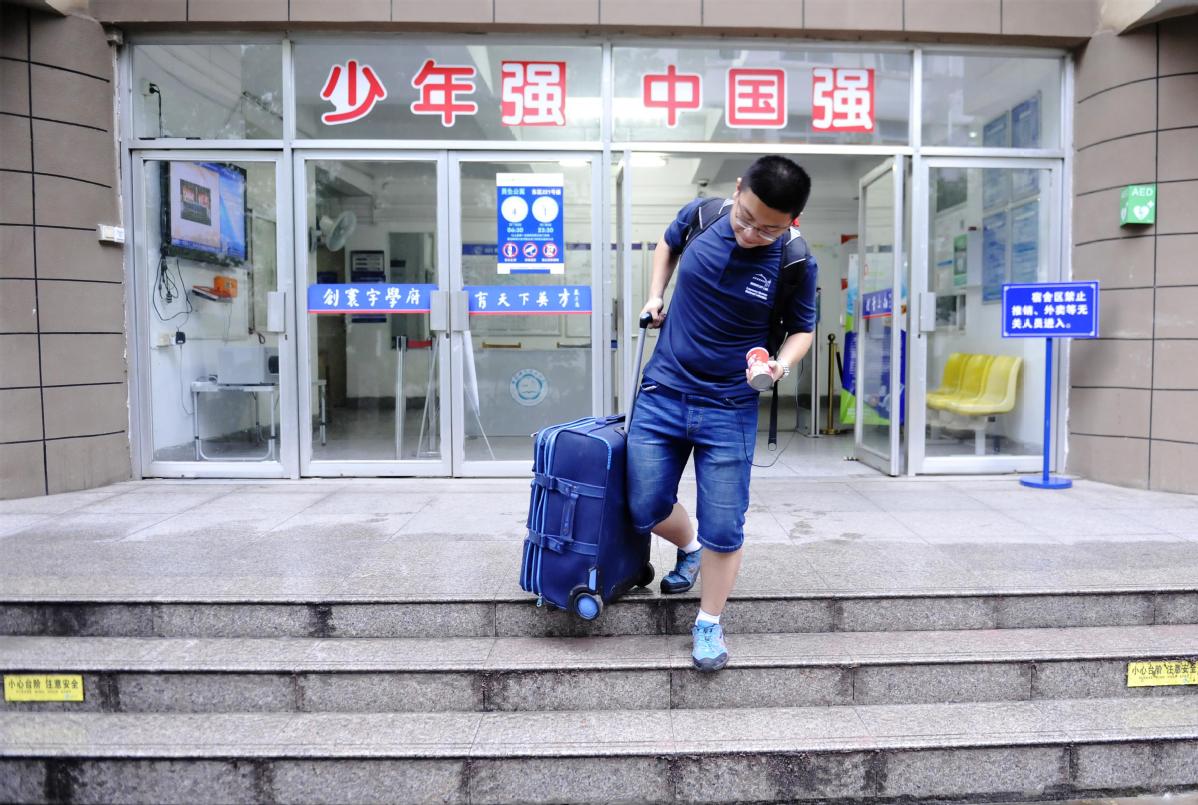Gifted students revel in a class of their own

A graduate leaves the class dorm to move overseas. XU MINHAO/FOR CHINA DAILY
Early start
Zhou Jianuo, 14, spent his primary and middle school years in Russia because his father is a diplomat in the country. However, he wanted to attend university in China, and USTC was his first choice.
Though he performed well at school in Russia, his family was concerned that he would not be able to adapt to the Chinese education system and would fail the gaokao.
Competition in the gaokao is always fierce. For example, 419,000 students took the exam in Anhui this year, but only 43.9 percent were accepted for undergraduate studies, according to the provincial education department.
Gaining entry to a top university is an even tougher task. USTC, Anhui's best university, recruited just 186 students from the province this year, while the number of successful candidates from other parts of the country was even lower.
To beat the competition, students at senior high schools study the same topics repeatedly and take a large number of mock exams. That regimen can stifle creative minds, according to experts.
"They scarcely learn any new knowledge in the third year of high school, and the intensive training for exams is harmful to really talented, creative kids," said Yin Min, Party chief at the School of the Gifted Young.
Chen, the dean, who attended a regular school, said, "We are not criticizing the regular education system, as most of the great people we know were educated in it."
While in Russia, Zhou studied textbooks used in middle and high schools in China, mostly on his own. It was a risky strategy.
"I could have failed to gain admission to a good high school, not to mention a key university, as my parents and I feared," he said.
He returned to Beijing at the end of last year, when he was in the second year of middle school, and attended a high school for six months before taking, and passing, the gaokao.
Zhou joined the School of the Gifted Young last month, thus beginning his university career about four years earlier than most USTC freshmen.
Chen said, "Fair education is not just about giving students in different areas equal access to good resources, but also about providing highly gifted kids with a wider range of possibilities, instead of forcing them to follow the regular routine."
Making an early start at college allows talented individuals to have longer careers because they leave earlier than regular students, he added.
In a lecture he delivered in Beijing in 2001, Tsung-dao Lee, who was awarded the 1957 Nobel Prize in physics at age 30, listed dozens of the world's greatest scientists, most of whom made their scientific breakthroughs in their 20s and 30s.
In the 1970s, Lee, a Chinese-American physicist, suggested that China should establish the Class of the Gifted Young.
Zhang Yaqin was one of first students to be recruited, at age 12. Later, Zhang became global vice-president of Microsoft Corp and president of the Microsoft China R&D Group. He is currently president of the internet giant Baidu.



